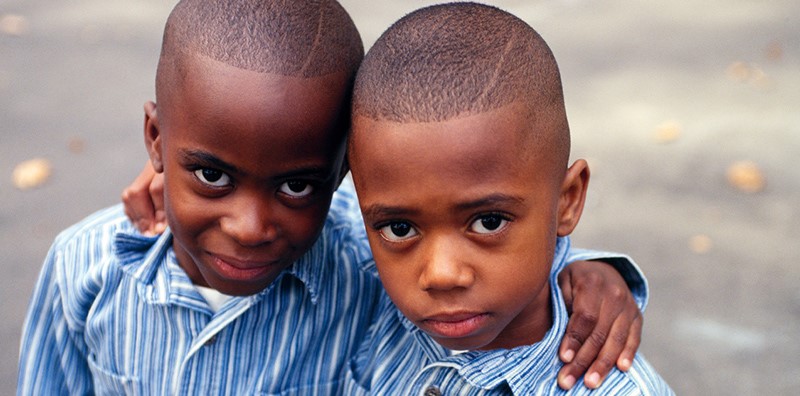
03:09 24th June 2016 | Multiple Pregnancies
Mutiple Births Twin Births West Africa South West Nigeria Special Yam Multiple Ovulation Identical Twins Fraternal Twin Girls 3D Ultrasound Images Genetic Disorders Multiple NewBorn
Nigeria has the highest number of multiple births and identical twins in the world. In fact the rate of twin births in West Africa is about four times higher than that of the rest of the world with the epicentre being Igbo-Ora, a small town in the southwest of Nigeria. More twins are born here than anywhere else on earth. Scientists have attributed it to the Yoruba tribe’s high consumption of a specific type of yam. A research study carried out at the University of Lagos Teaching Hospital has suggested that a chemical found in Yoruba women and the peelings of the tuber could be responsible. These yams contain a high level of substance similar to the hormone, oestrogen, and could possibly encourage multiple ovulation although some experts are sceptical about this theory.
Identical twins are the result of a random split of a single egg and cannot be genetically predisposed. They share the same DNA but do not have the same fingerprints. Fraternal twin girls have twice the chance of giving birth to twins, than singletons. A study in Padova, Italy, revealed that twins start bonding in the womb, when a series of 3D ultrasound images showed foetuses interacting with each other at 14 weeks. Triplets and quadruplets represent15 out of every 1000 births and 1 in 67 pregnancies is a multiple birth. There are an estimated 125 million multiples worldwide.
Several factors contribute to the development of multiple pregnancies. A history of multiple births on the woman's side of the family increases her chances of having a multiple pregnancy. Women of African descent are the most likely to have multiple pregnancies and if a woman has had a number of prior pregnancies, her chances of having a multiple pregnancy are increased. Older maternal age, associated with the social trend of delaying childbearing, accounts for the 25-30% rise in multiple birth rates since 1970 and the number of women seeking treatment for infertility has also risen dramatically since that time. Infertility treatments stimulate the ovaries to release multiple eggs and in vitro fertilization involves the transfer of multiple embryos into the womb.
There are risks associated with every pregnancy and these tend to increase with multiple pregnancies.
Almost half of all twins are born prematurely and/or have low birth-weight. This increases to 90% for triplets, quadruplets and quintuplets. Other risks can include birth defects or certain genetic disorders while the mother may be more prone to conditions like gestational diabetes, pre eclampsia and anaemia. Some are more threatening than others and all can be treated if diagnosed in good time.
Life changes after the birth of a child, so imagine how your life will be after the birth of two, three, four or more babies. The arrival of multiple newborns presents medical, logistical, financial, and emotional challenges for any family which may seem overwhelming. Friends, relatives and mothers-in-law are invaluable, because you need all the help you can get. Whatever you do, don’t panic. The babies are your first priority. Everyone will survive and, most importantly, so will you. If you can afford some help, it is worth getting it.
As the babies grow, you may find that you need a larger home, a bigger car, more furniture or a host of other things. While there are stores that give discounts for families who have twins or higher-order multiples, large-scale donations of formula and nappies from major manufacturers are less common nowadays. However, social service agencies, nonprofit groups, and support groups can be good sources of hand-me-downs and can help you meet the needs of your babies.
Some changes may come as more of a surprise. Having less time for each individual baby can make you feel guilty or sad. These emotions can become even more complex if you already have other children. Any stress and fatigue associated with caring for your children can impact on your relationship with your partner and he will have to lend more of a hand. Yet despite all of the challenges, multiples also bring great rewards. You'll have the chance to love several babies at once and marvel at the relationship between them, which is a very special one.
Search by condition, treatment or keyword and conveniently browse our informative articles
Book an appointment online or search for a clinic close to you.
Book an Appointment